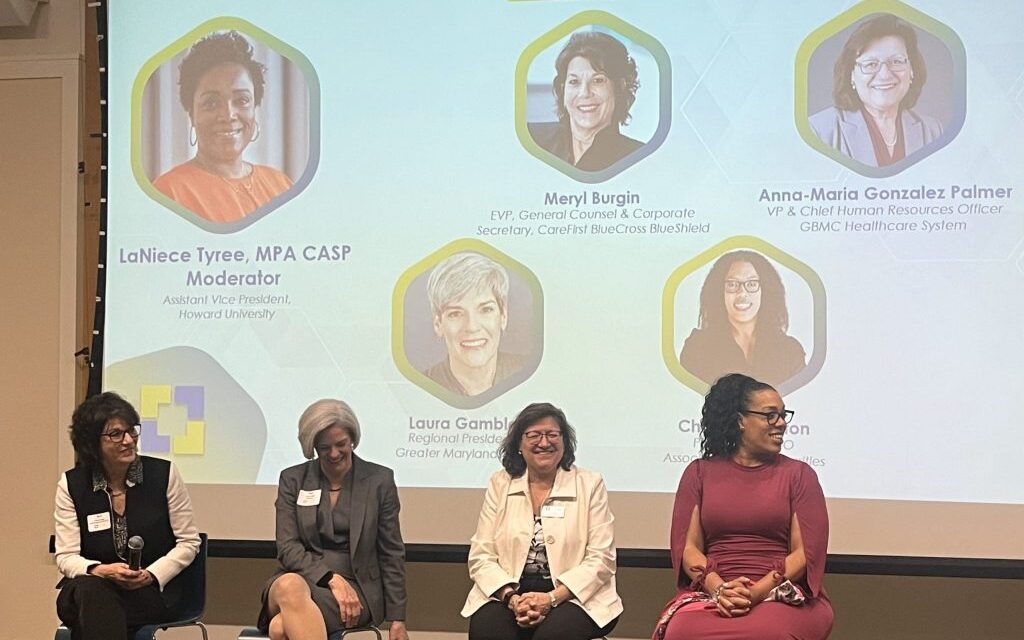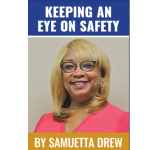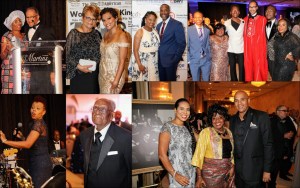By Megan Sayles,
AFRO Business Writer,
msayles@afro.com
Executive Alliance hosted its 2024 Honor Roll Award for Women’s Representation ceremony in Baltimore on March 20, celebrating 43 local, nonprofits, hospitals, colleges and companies—including the AFRO. Awardees demonstrated that women comprise at least 30 percent of their boards and 30 percent of their executive leadership.
During the event, Ellen Fish, Baltimore market leader for Sandy Spring Bank, unveiled findings from Executive Alliance’s 2024 Census Report of Women Board Directors in Maryland. The study revealed that 74 percent of board director seats in the state are held by men.
“Maryland does not compare well from a national standpoint either when you compare us to the Fortune 500 and the Stockton and Poor 500 (S&P 500) companies,” said Fish. “Nationally, since 2000, there are no more all-male boards for the S&P 500. Maryland still has seven all-male boards.”
One primary difference between Maryland boards and those in the S&P 500 is the implementation of age and term limits, which Fish said helps to accelerate diversity. She reported that while 69 percent of boards from companies on the index have these regulations, only 21 percent of Maryland boards have them.
The state’s boards also exhibit shortcomings in racial diversity. According to the census report, just nine percent of all new Maryland directors are Black and overall African Americans hold eight percent of director seats in the state.
Fish pointed to a new Nasdaq directive that seeks to tackle diversity gaps. The Board Diversity Rule requires companies listed on the exchange to publicly disclose data on the diversity of their boards. Depending on the company’s classification, they must also have one to two women, underrepresented minority or LGBTQ+ board directors by 2026 or an explanation for why not.
“What this does is bring transparency and light into those boardrooms, and hopefully it will encourage diversity,” said Fish.

During the program, attendees heard from four Maryland business leaders as part of a panel centered on women advocating for women in the workplace. One pressing topic of the conversation was the dream gap, which refers to young girls developing self-limiting beliefs about what they can achieve due to gender stereotypes and other social constructs.
The phenomenon has implications for women pursuing leadership roles and male-dominated fields, like science, technology, engineering and mathematics (STEM).
“The young women in our organization will not raise their hand for an opportunity unless they think they’ve got 90 percent of the skills, whereas every man will if he thinks he’s got 50 percent of the skills,” said Laura Gamble, regional president for PNC Bank in Greater Maryland. “A lot of times, we have to push the women to raise their hands and to think about their development plans.”
Chrissy Thornton, president and CEO of Associated Black Charities (ABC), said the dream gap is beginning to close as society moves toward breaking down gender roles.
“A lot of that is going away because a lot of our roles are being de-gendered,” said Thornton. “Back in the day, girls were given toy houses and dolls and taught to be nurturers and self-sacrificing. Then, we grow up and do that in the workplace.”
Thornton called for women in leadership roles to extend support to those trailing behind them and to be continual learners in their careers.
“My advice is to figure out how to pull someone else along, and don’t ever be too grown for mentorship yourself,” said Thornton. “Don’t ever relegate another woman to go through the same traumas that you’ve had to go through just because. There’s no benefit in that.”
Megan Sayles is a Report For America corps member.












